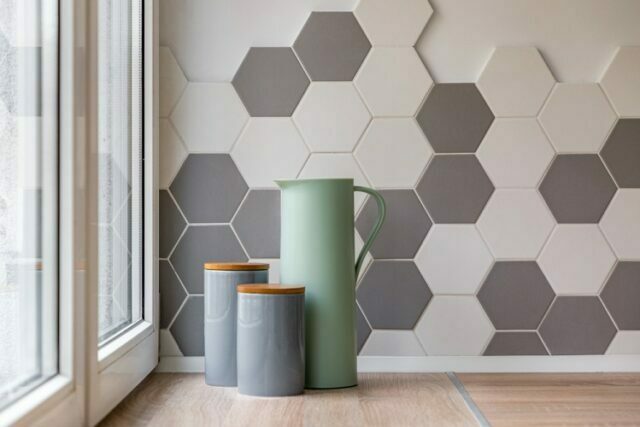Porcelain and ceramic tiles are both made from clay and they are fired in a kiln. The main difference is in the type of clay that is used, the way the tiles are finished and the water absorption rate.
Porcelain tiles are a type of ceramic tile, though they are more resistant to moisture, staining and water due to their blend of clays and other materials that are fired at much higher temperatures than ceramic tiles. In general, porcelain tiles are harder, denser and less porous than ceramic tiles.
Ceramic tiles come in two varieties: glazed and unglazed. Glazed ceramic tiles have a durable surface coating that is applied after the firing process. Unglazed ceramic tiles have no surface coating; they have the same composition as glazed ceramic tiles but do not have a protective top layer. Glazed and unglazed ceramic tiles can be used on floors or walls in any room of your home or business.
Porcelain floor tile is often used in showers, bathtubs and inside saunas where there is continuous moisture present. Porcelain tile works well in these areas because it isn’t easily damaged by water exposure and is easy to clean when necessary.
Porcelain tiles are made from refined clay that’s heated at a much higher temperature than ceramic tile, making them harder and denser. Porcelain has a water absorption rate of 0.5% or lower. This means that it will not stain easily and is less likely to crack than ceramic tile. Some types of porcelain tile have a textured finish for added slip resistance.
Ceramic tiles are made from red or white clay that’s heated at lower temperatures than porcelain tiles, making them less dense, softer and more porous. They have a water absorption rate of 0.5% to 3%. Ceramic tiles come with glazed or unglazed surfaces. Unglazed tiles have a rougher surface that provides better traction but requires more maintenance to prevent stains. Glazed tiles can be high-gloss or matte. High-gloss glazes are slippery when wet, so they are not ideal for floors or countertops
Ceramic tiles are usually made with red or white clay that is fired at high temperatures until hard. These types of tiles are resistant to moisture, stains, scratches, heat and water. They are also available in a wide range of colors, sizes, shapes, textures and finishes.
Porcelain tiles are more dense than ceramic tiles because they are fired at higher temperatures for longer periods of time. They come in all the same styles as ceramic tile, but they can also be used outdoors because they are harder and less porous than ceramic tiles.
Both porcelain and ceramic tiles are easy to maintain and can be cleaned easily with a damp mop or sponge. They do not require sealing like natural stone does.
There is price difference between the two types of tile as well. Ceramic tile is usually less expensive than porcelain tile while porcelain tends to cost more per square foot than ceramic tile does.
If you are looking for luxury and commercial porcelain and ceramic tiles, buy Minoli tiles online at Hyperion Tiles.


















